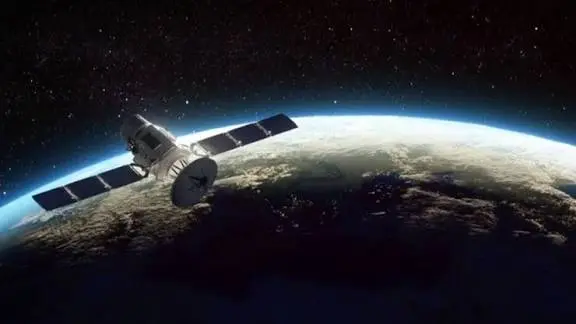
Russia’s Satellite Internet Ambition Takes Aim at Starlink (photo-X@PolymarketIntel)
Russia’s New Dream, Internet from the Sky
In a world where fast internet is as important as clean water and electricity, Russia has decided to take a giant leap. The country is building its own satellite internet system called Rassvet, which means “dawn” in Russian. This ambitious project is designed to compete with Starlink, the satellite internet service created by Elon Musk’s SpaceX.
Starlink already has thousands of satellites orbiting Earth and provides internet to remote areas across the globe. It’s especially useful in places where regular internet cables can’t reach, like mountains, deserts, or war zones. Russia wants to do the same, but with its own technology and satellites.
The first launch of Rassvet is planned for late 2025, with 16 satellites going into space. By 2035, Russia hopes to have over 900 satellites in orbit. That’s a big number, and it shows how serious they are about this project.
The goal is simple: give people in Russia and other parts of the world fast, reliable internet, no matter where they live. From snowy villages in Siberia to ships sailing in the Arctic Ocean, Rassvet wants to connect everyone.
Why Russia Wants Its Own Satellite Internet
You might wonder why not just use Starlink? It’s already working well in many countries. The answer is both technical and political.
First, Russia wants to be independent. Using a foreign internet system means relying on another country’s technology. In times of conflict or tension, that can be risky. For example, Starlink was used by Ukraine during its war with Russia, helping soldiers communicate and share information. That made Russian leaders uncomfortable.
Second, Russia wants to lead in space technology again. During the Cold War, Russia (then the Soviet Union) was a space pioneer. They launched the first satellite, Sputnik, and sent the first human, Yuri Gagarin, into space. But in recent years, they’ve fallen behind. SpaceX and NASA have taken the spotlight. Rassvet is a chance for Russia to shine again.
Third, there’s a business opportunity. Satellite internet is a growing market. Millions of people still don’t have good internet, especially in rural areas. If Russia can offer a cheaper or better service, it could earn money and influence.
What Makes Rassvet Different from Starlink?
Starlink is fast, but it’s also expensive. Users need a special dish and pay monthly fees. Russia says Rassvet will be more affordable, especially for people in remote areas. They also plan to offer government support to make it easier for schools, hospitals, and small businesses to get connected.
Another difference is the technology. While Starlink uses low-Earth orbit satellites, Rassvet will mix different types of orbits to cover more ground. This could help reduce delays and improve speed.
Russia also wants to make Rassvet secure. They’re building it with strong encryption and protection against hacking. That’s important in today’s world, where cyberattacks are common.
The project is being led by Bureau 1440, a Russian aerospace company. They’re working closely with Roscosmos, Russia’s space agency. Together, they’re designing satellites, building launch systems, and creating ground stations.
What This Means for the Future of Internet and Space
Rassvet is more than just a tech project, it’s a sign of how the world is changing. Countries are no longer just fighting over land or oil. Now, they’re competing in space and cyberspace.
If Rassvet succeeds, it could inspire other countries to build their own satellite networks. We might see a future where the sky is filled with thousands of satellites from different nations, all beaming internet to Earth.
But there are challenges too. Too many satellites can cause space traffic and increase the risk of collisions. There’s also the issue of space junk, old satellites and broken parts floating around. Experts say we need global rules to manage this new space race.
For regular people, this could be good news. More competition means better services and lower prices. Imagine being able to stream movies, attend online classes, or run a business from a remote village, all thanks to satellite internet.
For Russia, Rassvet is a chance to show the world that it can still innovate and lead. For the rest of us, it’s a reminder that the internet is no longer just underground, it’s above us, in the stars.
Also read: Starlink Skyrockets Past 7 Million Users: How SpaceX Is Changing Internet for the World
Stay informed with the latest news and updates – only on Rapido Updates.